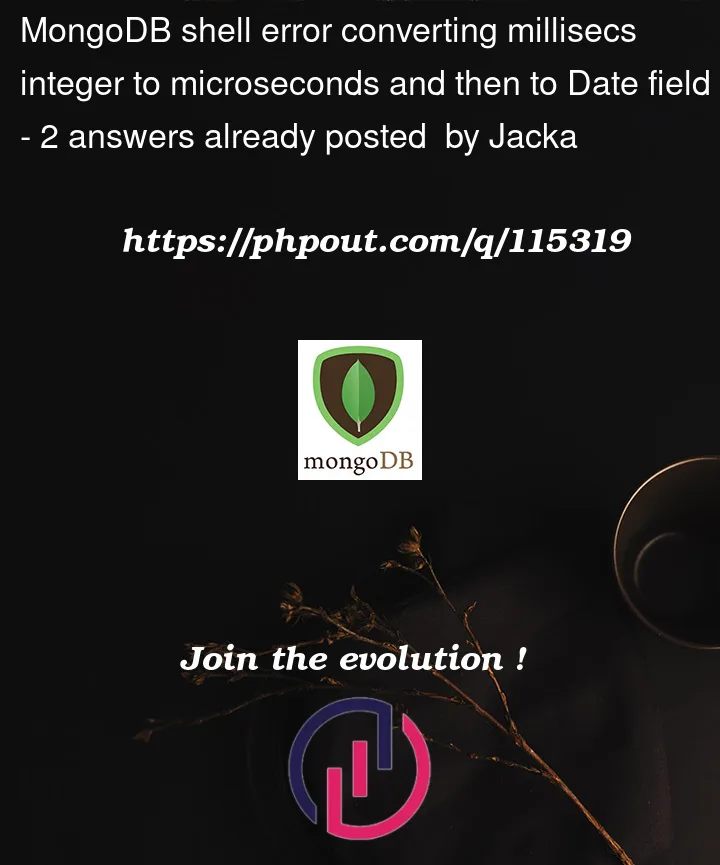Want to pass an integer holding microseconds since Epoch, to MongoDB shell’s (version ~ 4.2) Date function to obtain a date. I understand MongoDB Date can take as argument, integer of milliseconds not microseconds, so need to convert from micro to milliseconds first by dividing by 1000.
Purpose is to add a date field ‘new_field5’ to collection, sample format below, initialising it’s value from an existing integer field in collection called ‘ts’, which has epoch time in microseconds.
Step 1:
First tried converting a static value of microseconds to milliseconds in aggregration pipeline but all the dates are getting initialised as intial date of epoch.
db.mycollection.update({}, [ {"$set" :{"new_field5": [new Date( [ {$round : [{ $divide: [ 1675750431775274 , 1000 ] },0]} ])] }} ], {multi:true})
Step 2:
Would then amend query to take the milliseconds integer from field ts
db.mycollection.update({}, [ {"$set" :{"new_field5": [new Date( [ {$round : [{ $divide: [ "$ts" , 1000 ] },0]} ])] }} ], {multi:true})
Below works: if I start with integer containing milliseconds with no division required, the Date field is correctly derived from it. eg;
db.mycollection.update({}, {"$set" :{"new_field5": [new Date( 1675750431775) ]}} , {multi:true})
Collection layout:
{
"_id": "nnn-f26c7979-99c8-4b27-b8e6-8f57e27c0fb4_1675750435048498",
"sessionId": "nnn-f26c7979-99c8-4b27-b8e6-8f57e27c0fb4",
"orchId": "orch-c9cd830e-917c-4021-b8ff-cecf1d534c34",
"cvId": "cv-f26c7979-99c8-4b27-b8e6-8f57e27c0fb4",
"vName": "orch",
"data": "{"text":"/inform{\"_MobileDevice\": \"apple\"}"}",
"ts": {
"$numberLong": "1675750435048498"
},
"new_field5": [
{
"$date": {
"$numberLong": "0"
}
}
]
}




2
Answers
You should pass the rounded value directly to the
new Date(), not an array:The
$roundand$divideoperators only have meaning on the server side, but thenew Date()constructor will be executed on the client side, before sending the query to the server.You should either use javascript functions to construct the date on the client side:
or use the
$toDateoperator to construct the date on the server side:Playground